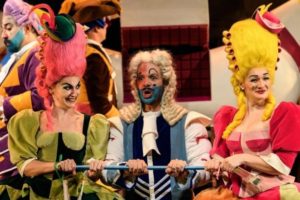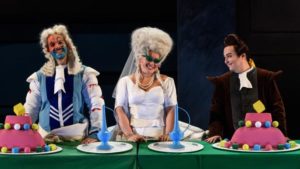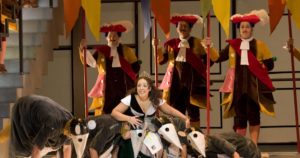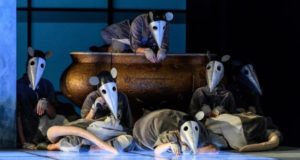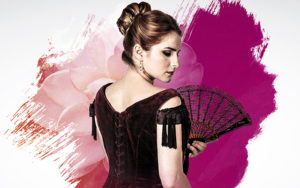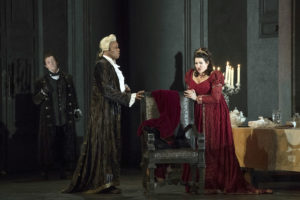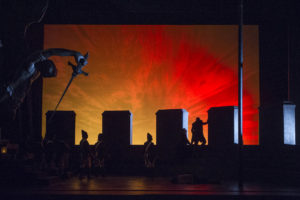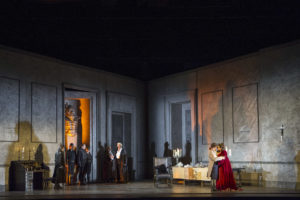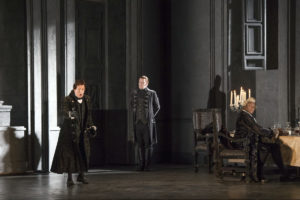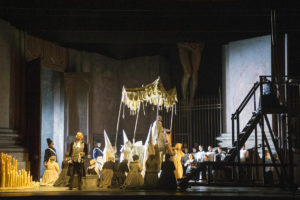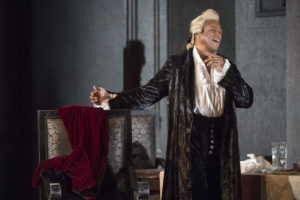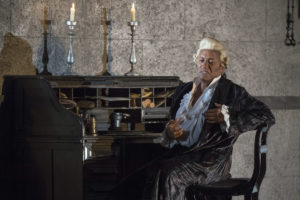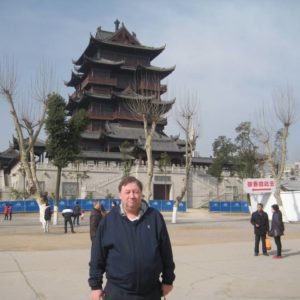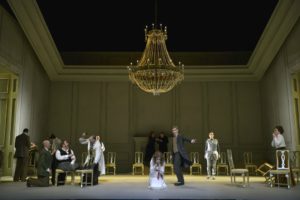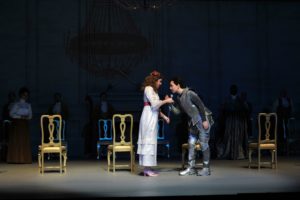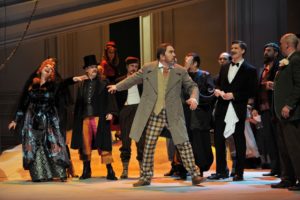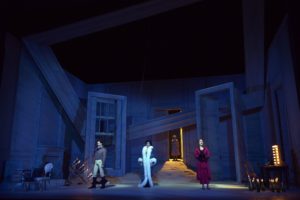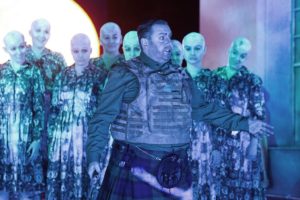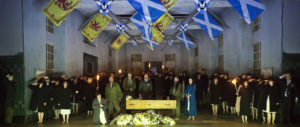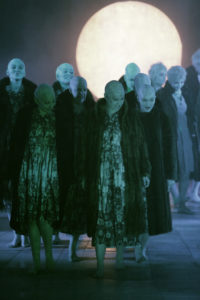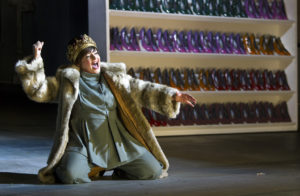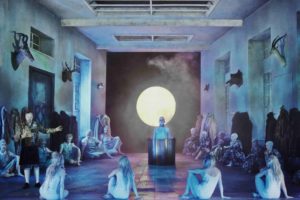Music: Wolfgang Amadeus Mozart
Libretto: Emanuel Schikaneder
Director and English translator: Daisy Evans
Designer Loren Elstein
 (3 / 5)
(3 / 5)
With its contending forces of good and evil, Mozart’s sardonic fairy-tale The Magic Flute, has more than a hint of the pantomimic. To use the words of the vernacular, Daisy Evans new production for the Welsh national Opera, sung in English with Welsh sub-title, sure does that in spades. Opera afficionados used to the more traditional – as in WNO’s much loved version last staged in 2005 – need to take a breath and prepare.
Mozart’s ‘Flute,’ first performed in Vienna in 1781, is reset by Evans into today’s world, with more than a hint of Star Wars, laser beams, fluorescent multi coloured lights et al. Not always easy to follow if you neglected to read the excellent programme notes. The connecting link which runs throughout is Schikanender’s libretto telling the story of the quest of Tamino, a Prince who sets out to find and rescue Pamina, daughter of the Queen of the Night. Pamina has been kidnapped by the villainous Monostatos by order of Sarastro, head of a mystic cult. Encouraged by ladies of court, Tamino is helped by the magic flute and Papageno, the bird catcher who lives in a hut in the woods and whose idea of heaven is hearth and home with the girl of his dreams. The story, with its mix of wonderful music, soaring arias, lovers’ tiffs and misunderstandings, set against a background of birdsong and mysticism, strongly references the fight between good and evil, the power of womanhood, all being brought to the fore by Evans, who has added and subtracted spoken passages in a translation that allows at times for a contemporary use of words that does not always sit well.
And thereby lies the rub, for in her endeavour to give the fairy-tale that is The Magic Flute a modern twist, Evans goes overboard. Mozart’s light-hearted touch is lost at times amidst a welter of light beams, however skilfully used and puppetry, however effectively used. Under the direction of puppeteer Matthew Forbes flocks of birds flutter intermittently around Papageno’s head. Used throughout, this is a clever idea (although it might have been preferable to dress those manipulating the strings in black) but a tad over used – it is possible to have too much of a good thing.
Nevertheless, consisting as this opera does of some of the composer’s most memorable arias and lyrical duets, this production does still keeps much of the romance, comedy and mysticism of the original. Thanks being due in no small measure to the expertise of the orchestra of the Welsh National Opera under the baton of Freddie Brown and the admirable chorus. The latter, despite being attired in headgear similar to that of a beekeeper in the second half, is as always in fine fettle, although under used in this production. At Saturday night’s (March 11th) performance, British-born soprano April Koyejo-Audiger made her WNO debut with a pleasing soprano and good sense of timing opposite South African singer Thando Mjandana, whose melodic tenor stands him in good stead in the lyrical duets with Koyejo-Audiger. Neal Davies is a quirky Papageno who combines comedy with sympathy both for being put-upon and for his unwanted single existence.
Audiences familiar with this opera are known to wait with baited breath for the high-octave reach called for by the Queen of the Night. Lyric-dramatic coloratura Julia Sitkovetsky does not disappoint with a soaring performance in high-octave and extremely difficult solos which even the most accomplished of singers can struggle to reach. Carmarthenshire-born Alun Rhys-Jenkins, whose specialises in tenor character roles, plays the supposedly frightening Monostatos for laughs more than terror, with a touch of the game show host at times in the role of sidekick to a far from sinister Sarastro sung by a bewigged Jonathan Lemalu with more than a touch of the Georgian gentleman.
A minimal and modernistic set is the background to an innovative and clever production. Whether or not this is a welcome addition to the multiple performances world-wide of one of Mozart’s most popular operas remains to be seen.
Snap: Less is sometimes more!
Runs until March 17th in Cardiff, then touring.
Tags: Alun Rhys-Jenkins, April Koyejo-Audiger,Cardiff, Daisy Evans, Emanuel Schikaneder, Freddie Brown, Jonathan Lemalu, Julia Sitkovetsky, Loren Elstein, Matthew Forbes, Neal Davies, Thando Mjandana, The Magic Flute, Wales Millennium Centre, Welsh National Opera, Wolfgang Amadeus Mozart,
 (3 / 5)
(3 / 5)
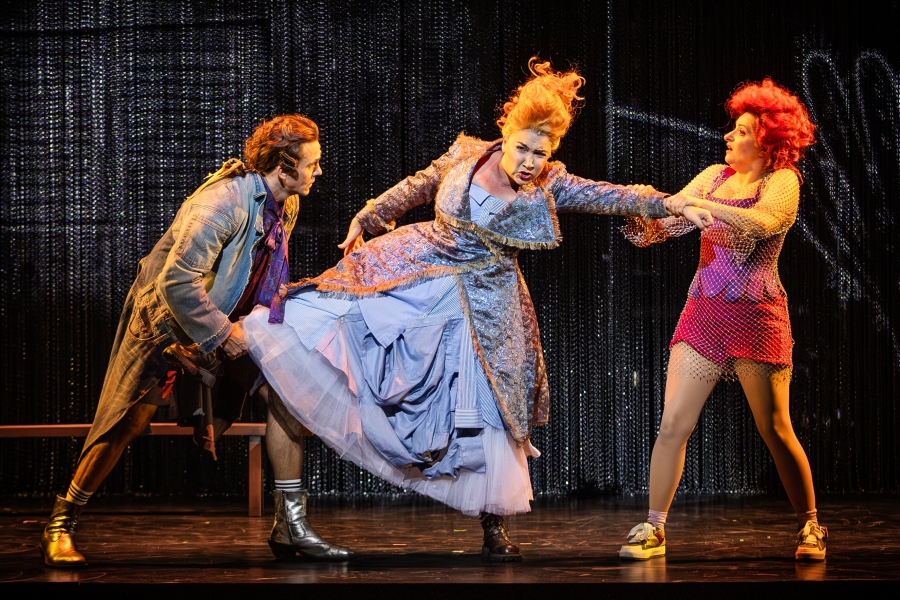
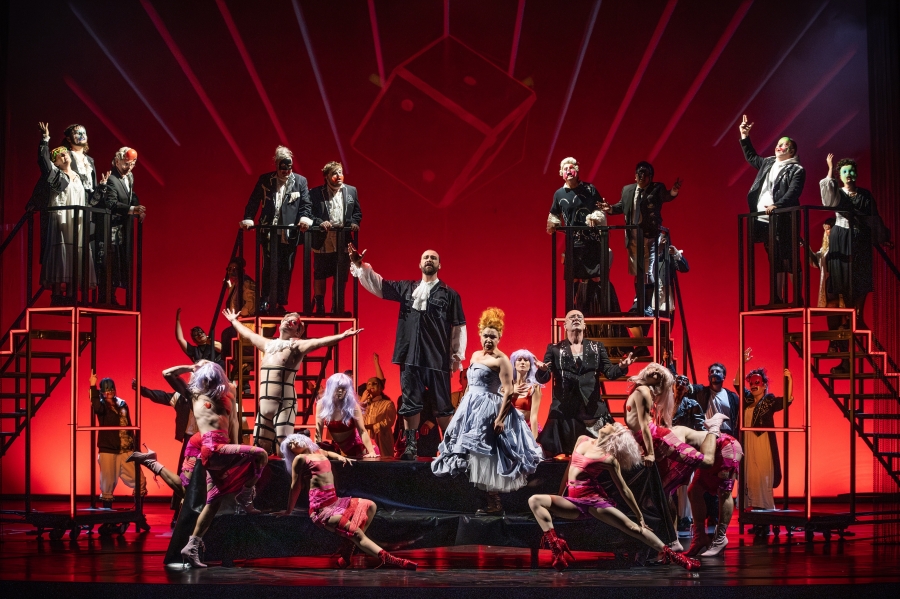

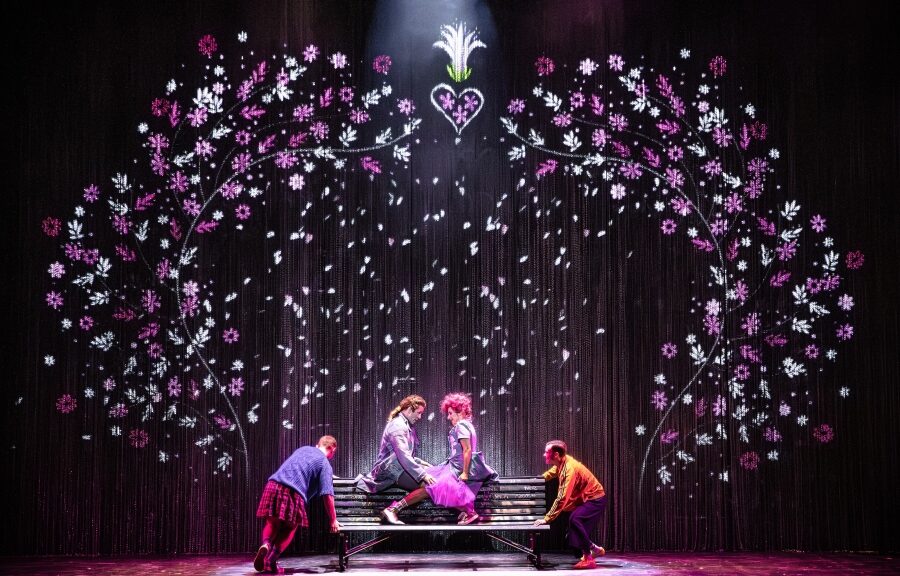
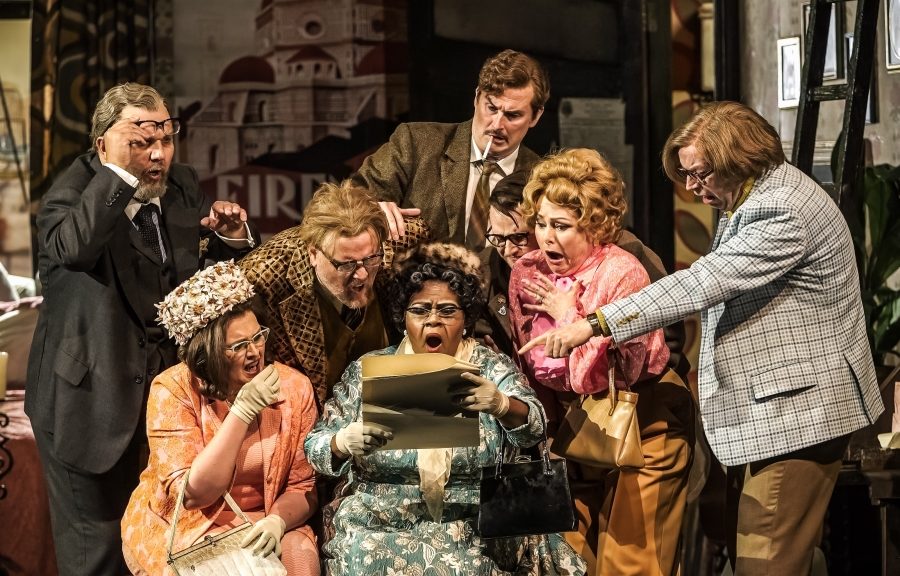
 (5 / 5)
(5 / 5)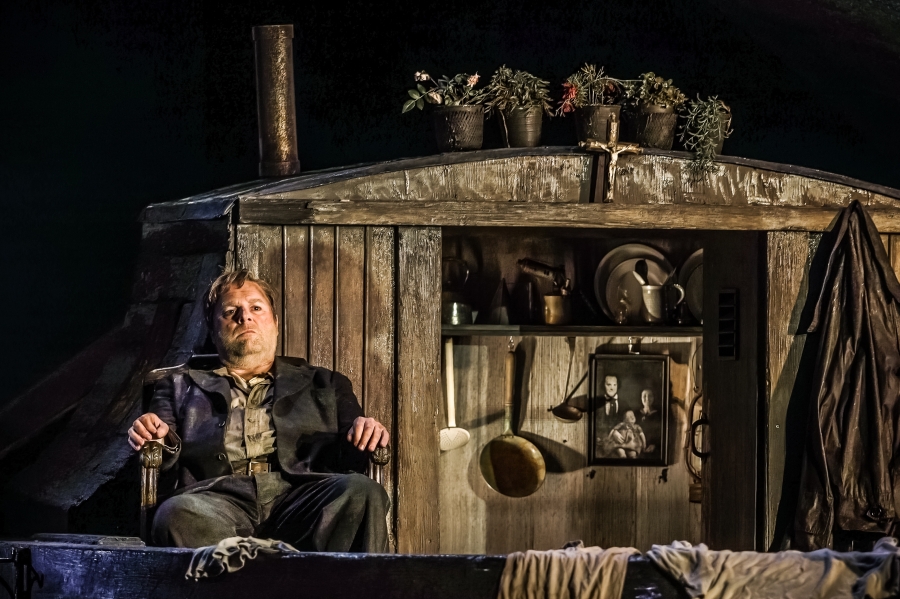
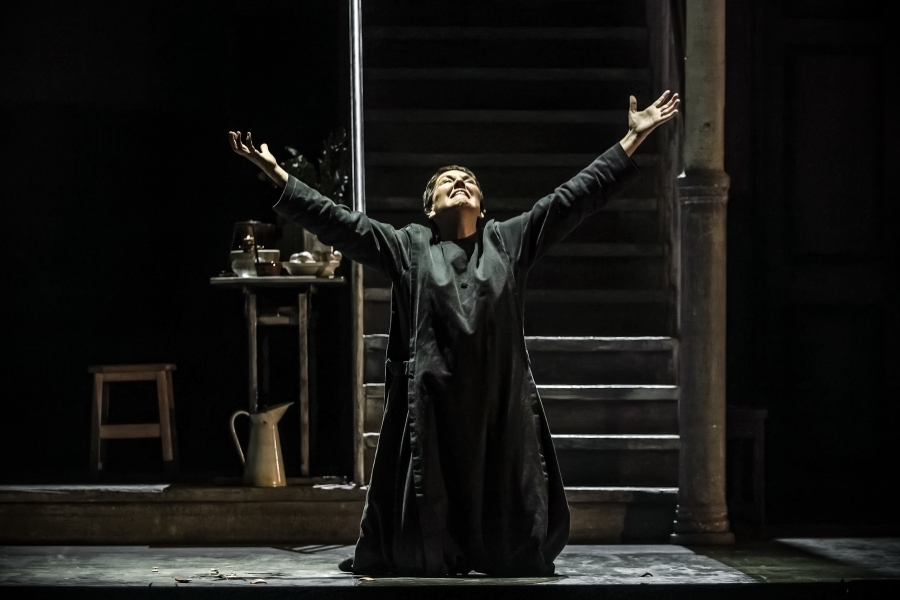
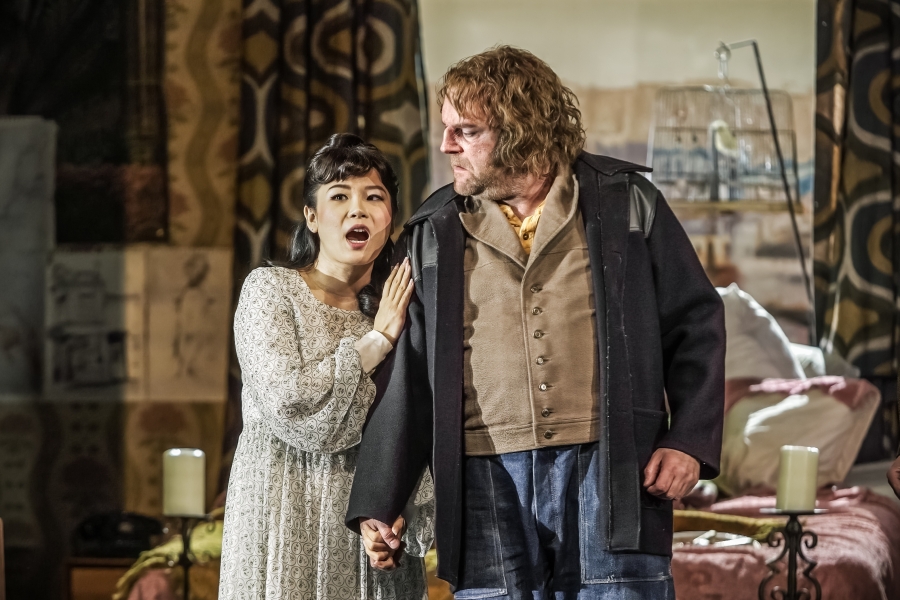
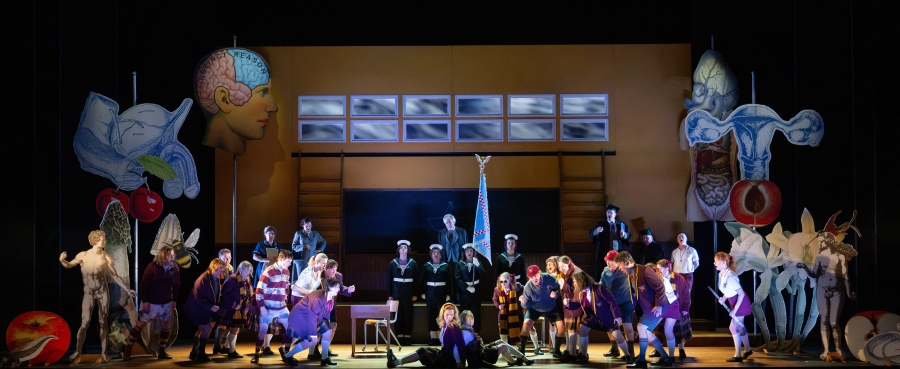
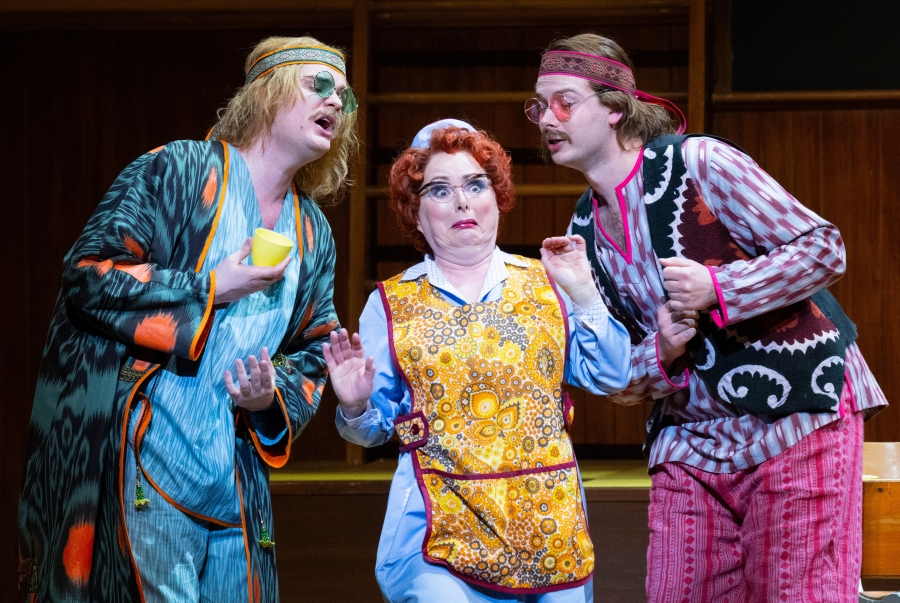
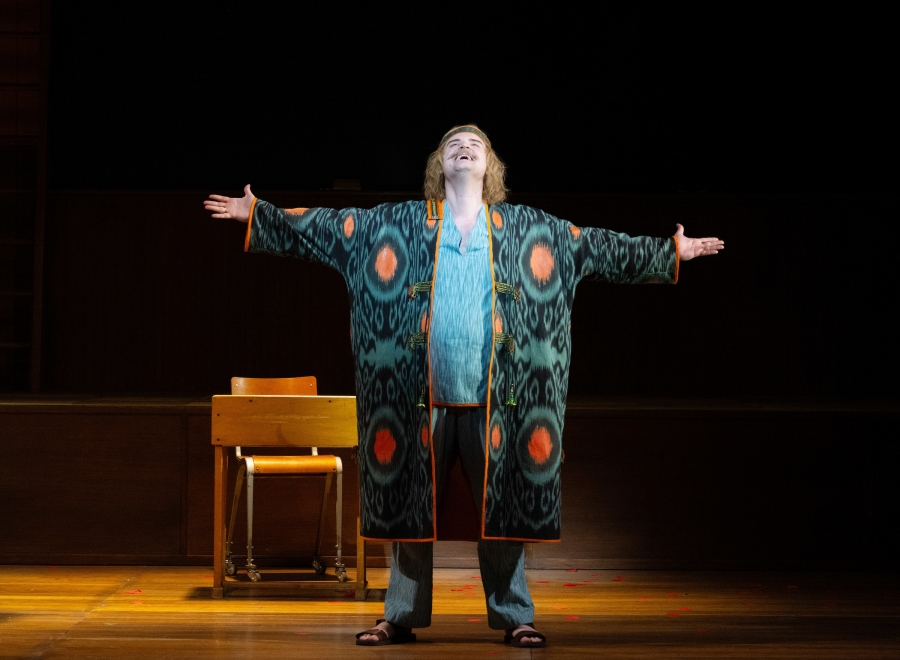


 (4 / 5)
(4 / 5)